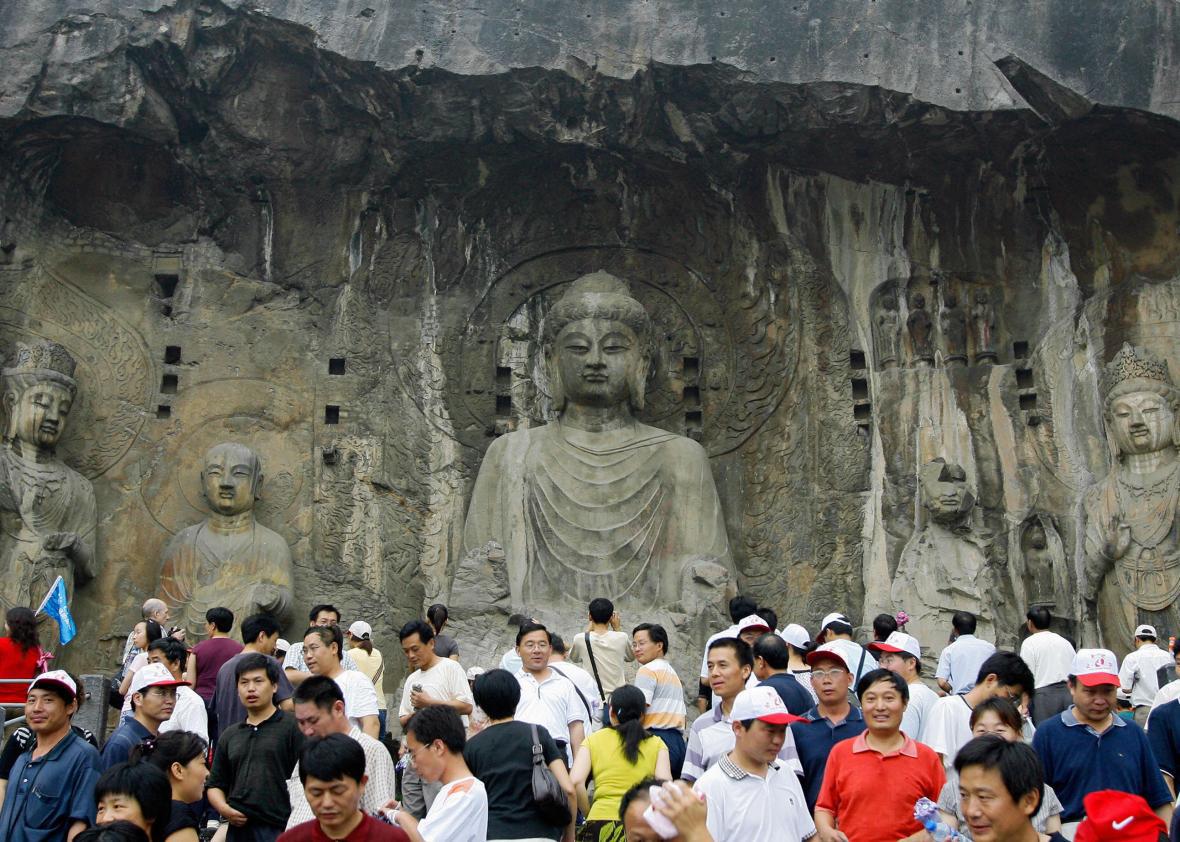The U.S. decision, announced Thursday, to withdraw from UNESCO over what the State Department calls “anti-Israel bias” and a need for “fundamental reform” is the latest chapter in America’s surprisingly contentious relationship with the Paris-based agency best known for its cultural preservation work and list of protected World Heritage sites.
The Reagan administration pulled the U.S. out of UNESCO in 1983 over what it saw as a politicized left-wing cultural and economic agenda promoted by the Soviet Union. George W. Bush’s administration rejoined in 2002 during its ultimately unsuccessful diplomatic efforts to win international support during the runup to the war in Iraq.
In 2011, after UNESCO granted membership to Palestine, the Obama administration (reluctantly) cut U.S. funding to the organization in accordance with a law passed in the 1990s that requires the U.S. to defund any U.N. agency that grants the Palestinians full voting membership. (The Palestinians have observer status but are not full members in the General Assembly, in large part because the threat of U.S. veto.) UNESCO responded to that U.S. move by suspending U.S. voting rights in 2013. Since then, the U.S. has maintained a presence at UNESCO and lobbied behind the scenes.
The latest friction comes after a UNESCO vote in June that referred to Israel as an “occupying power” in Jerusalem. The move is consistent with Ambassador Nikki Haley’s vow during her confirmation hearing to combat what she called the “U.N.’s long history of anti-Israel bias.” But given that the U.S. already doesn’t fund or vote at UNESCO, the actual impact of the move will probably be minimal. The U.S. says it is seeking “permanent observer” status at the organization.
(The United States has 10 UNESCO-listed cultural sites and 12 natural heritage sites, including the Statue of Liberty and the Grand Canyon.)
Although it’s tempting to dismiss the withdrawal as another display of the Trump administration’s U.N.-bashing, there’s certainly room to criticize UNESCO. The organization does some commendable work on environmental conservation and media training. And recently, it has taken the lead in spurring international awareness and action to combat ISIS’s destruction of cultural sites and illegal trade in antiquities. But critics charge that it often harms the places it claims to protect by encouraging unregulated tourism and has stretched itself too thin by admitting more than 1,000 heritage sites.
The U.S. departure could further increase China’s growing clout within the organization. Beijing has made UNESCO a key component of what Xi Jinping calls “great-power diplomacy with Chinese characteristics,” lobbying heavily for heritage designations. It now ranks second only to Italy with 52 World Heritage sites and is on track to become number one. UNESCO’s decision in July to extend heritage status to a plateau in a heavily Tibetan area was criticized for reinforcing Chinese control over the region by allowing authorities to remove Tibetan residents from it.
Charges that UNESCO has become too politicized and strayed from its primary mission are fair, but that has less to do with the organization itself than its members. Like any international organization, it’s a reflection of the countries within it, which makes it hard to believe that the U.S. departure will do anything to address American concerns.
